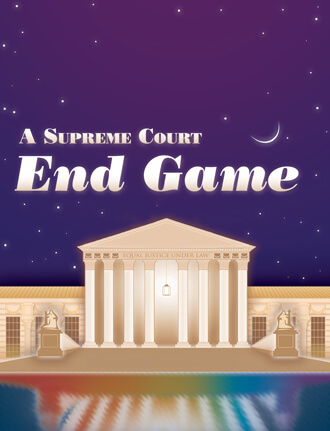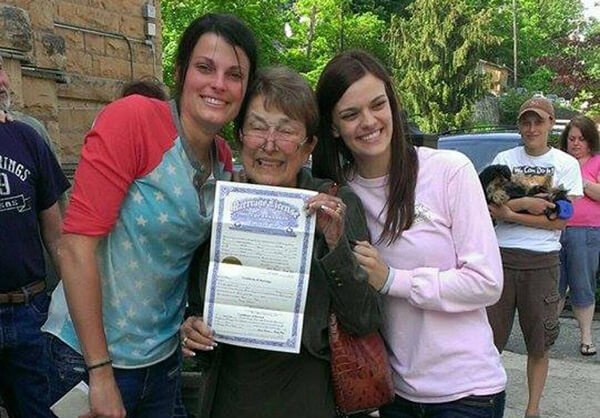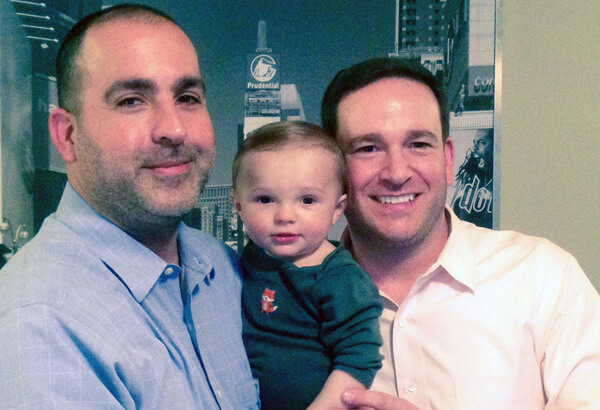ILLUSTRATION BY MICHAEL SHIREY
More than 300 same-sex couples who married in Michigan between a March 2014 marriage equality ruling in federal court and the October appellate ruling overturning that decision are entitled to have their marriages recognized, a different US district court judge has found.
Rejecting the state’s argument that the adverse ruling from the Sixth Circuit Court of Appeals on October 6 effectively invalidated the marriages, District Court Judge Mark Goldsmith, on January 15, wrote, “what the state has joined together, it may not put asunder.”
The couples married after District Court Judge Bernard Friedman, last March 21, ruled that Michigan’s ban on same-sex marriages violated the 14th Amendment. Friedman’s ruling came late on a Friday afternoon, but several counties opened their offices on Saturday and couples rushed to take advantage of the opportunity to marry. The Sixth Circuit issued a stay late in the day on March 22, halting the weddings.
On January 16, the US Supreme Court announced it would review the Sixth Circuit ruling overturning Friedman’s decision and similar district court decisions involving plaintiffs in Ohio, Tennessee, and Kentucky.
After the Sixth Circuit’s stay last March, Michigan Governor Rick Snyder, a Republican, acknowledged that the hundreds of marriage performed were legal marriages, but argued that since the stay put the state’s marriage ban back into effect, the marriages would not be recognized while the appellate process played out.
In response, some of the couples who married, represented by the American Civil Liberties Union of Michigan, filed suit to compel the state to recognize their marriages. A second lawsuit was filed on behalf of people who were married in other states but live in Michigan, claiming that their marriages were also entitled to recognition. Goldsmith’s January 15 ruling rejected a motion to consolidate the two cases, asserting they presented distinctly different issues.
Regarding the weddings that took place in Michigan, Goldsmith concluded that “the continued legal validity of an individual’s marital status is a fundamental right” protected by the 14th Amendment’s due process clause. Despite the Sixth Circuit’s reversal of Friedman’s original decision, Goldsmith found, “the same-sex couples who married in Michigan during the brief period when such marriages were authorized acquired a status that state officials may not ignore absent some compelling interest — a constitutional hurdle that the defense does not even attempt to surmount.”
In other words, the state did not argue there was some compelling reason not to recognize these marriages. Instead, it asserted it was premature to recognize them until there is a final conclusion to the original marriage case at the Supreme Court. In Goldsmith’s view, once a clerk issued a license and the marriage was solemnized, it was a legal marriage and the married couple had a right to be treated the same as all other married couples in the state unless the state produced a compelling justification for treating them differently.
Even if the Supreme Court upholds the Sixth Circuit, the marriages in question would still be valid, Goldsmith concluded, because they were carried out pursuant to a duly issued federal district court decision that had not yet been stayed or reversed on appeal. The state’s argument that a reversal of the original district court ruling might lead to the awkward and difficult process of having to unravel these marriages was “an oversimplified misstatement.” Goldsmith wrote.
Goldsmith found that the plaintiffs adequately showed that the harms they suffered were not just monetary, though a couple’s inability to have a co-parent adopt a partner’s child or to have one partner enroll in the other’s employee benefits program does have financial implications. The harm to a couple’s dignity cannot be compensated entirely by money since they suffer an irreparable injury every day the state denies recognition to their marriage.
Recognizing that the state might want to appeal his ruling, Goldsmith granted a 21-day stay of his order. As a result, Michigan may be able to delay his ruling until the Supreme Court settles the underlying marriage case Judge Friedman decided last March.
The state has not yet indicated whether it would appeal Goldsmith’s ruling, with much of the immediate discussion in Michigan focused on the Supreme Court’s announcement the following day that it would be reviewing Friedman’s original ruling.






































